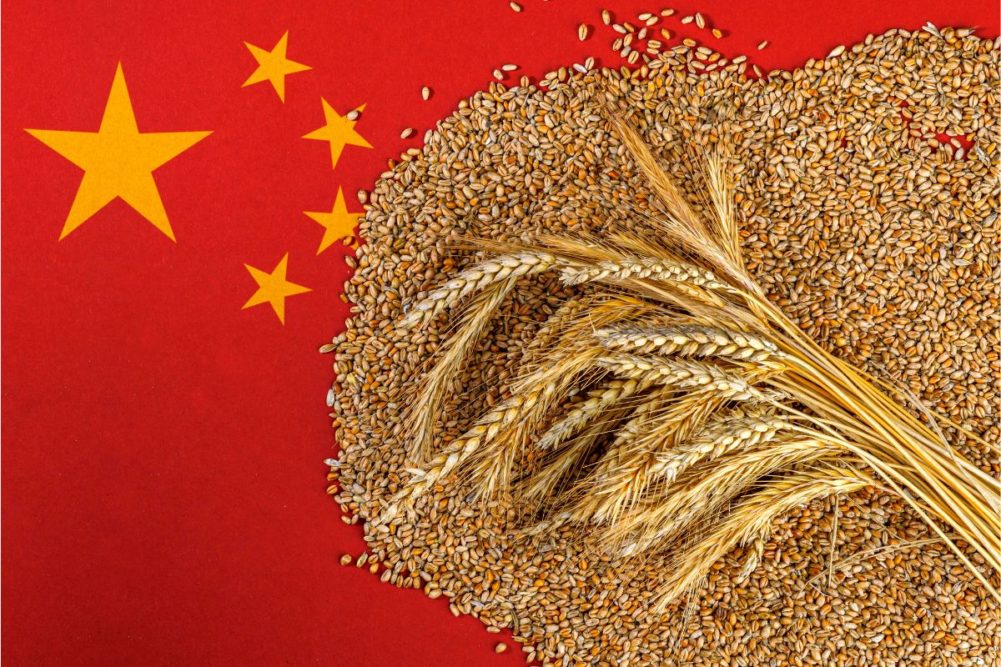Has the boom in Chinese grain imports peaked?

China’s influence on global grain markets cannot be overstated. For decades, its large population, rapid economic growth, and limited domestic production have led to a sharp increase in imports of grains and oilseeds.
In the 2023-24 marketing year, China ranks first in imports of wheat, corn, sorghum, barley, and soybeans, importing 111.5 million tons of soybeans (63% of the world total). Since 2000, total imports of corn, wheat, and soybeans have increased by 982%, from 13.5 million tons to 146.1 million tons.
However, a declining population for the first time since the early 1960s and an economic downturn affecting consumer purchasing power make China’s long-term demand for imported grain uncertain.
According to the China Agriculture Monitoring and Early Warning System (CAMES), China’s grain imports may decrease by 30% from 2024 to 2033. This is significantly different from the USDA’s forecasts, which expects a slight decline in wheat imports, a slight increase in corn and rice imports, and a 33% increase in soybean imports.
Even the more modest USDA forecasts indicate a significant shift from the last 20 years. While most analysts predict a long-term decline in China’s population, the state of its economy is less predictable and may be a concern in the short term. It is the population decline that could lead to a decrease in demand for grains and oilseeds.
China is also striving to become more self-sufficient. According to CAMES, over the next decade, grain production in the country will grow by 11%, while consumption will increase by only 2.3%. Efforts to increase domestic production, including the approval of genetically modified corn, should reduce dependence on imports.
It is worth noting that with 20% of the world’s population, China holds almost 70% of the world’s corn, 60% of rice, and 51% of wheat. These large reserves, together with its position as a leading grain importer and its desire to increase production, reflect the country’s commitment to food security.
While China’s grain imports are expected to decline, it is unlikely that a country so focused on food security will drastically reduce consumption by significant percentages, as CAMES predicts. A more likely scenario is a gradual increase in domestic production, a slight increase in imports, and further accumulation of grain stocks.
Read also
Secure Early Ticket (offline & online) for BLACK SEA GRAIN.KYIV by Feb 15!
Iran in 2026: Why grain suppliers will be reshuffled and where Black Sea can win
Why Ukrainian rapeseed exports are falling — and who is winning in 2025/26
Black Sea & Danube region: How agri business can generate money in 2026
EU duties on Russian linseed enable Kazakhstan to boost record exports to Europe
Write to us
Our manager will contact you soon



